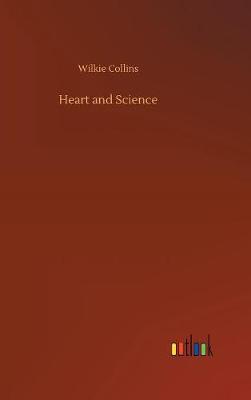Reviewed by Mercy on
Reseña completa: http://thebooksaremylife.blogspot.com/2014/12/resena-corazon-y-ciencia-wilkie-collins.html
Reading updates
- Started reading
- 31 July, 2014: Finished reading
- 31 July, 2014: Reviewed

Wilkie Collins's later novels are often as concerned with social issues as they are with simple storytelling-but as more and more critics are suggesting, the best of them are as readable and thought-provoking today as they were when they first appeared. Of none is this more true than of his 1883 novel Heart and Science, which Collins himself placed alongside his masterpiece The Woman in White.
Heart and Science turns on the fate of the orphaned Carmina Graywell, who is left in the charge of her aunt and guardian Mrs. Gallilee when her fiance is forced to take an extended trip to Canada's drier climes in order to recover his health. Over the issue of her inheritance Mrs. Gallilee schemes to manipulate, control and ultimately destroy the naive but strong-willed Carmina. The story is complicated by the machinations of Dr. Benjulia, a dark genius whose passionate devotion to the study of diseases of the brain leads him to encourage the progress of Carmina's life-threatening brain illness for the sake of scientific observation; the narrative builds to a pair of spectacularly lurid climactic scenes.
Collin's novel tackles the debate over what he termed `the hideous secrets of Vivisection' with a passionate intensity aroused in large part by the sensational 1880s case of a doctor who was acquitted on charges laid under the new Cruelty to Animals Act of having practiced live experimentation on animals without a license. Excerpts from a contemporary account of this trial, together with other documents relating to the vivisectionist controversy and a variety of contemporary reviews of the book, are included among the appendices of this volume. The edition also includes a full introduction, chronology, explanatory notes and a note on the text.
Heart and Science's story of the struggle between strong-willed women will strike chords of sympathetic understanding with modern readers-as will its vivisectionist theme, with it's clear parallels to the animal welfare/ animal rights debates of today.